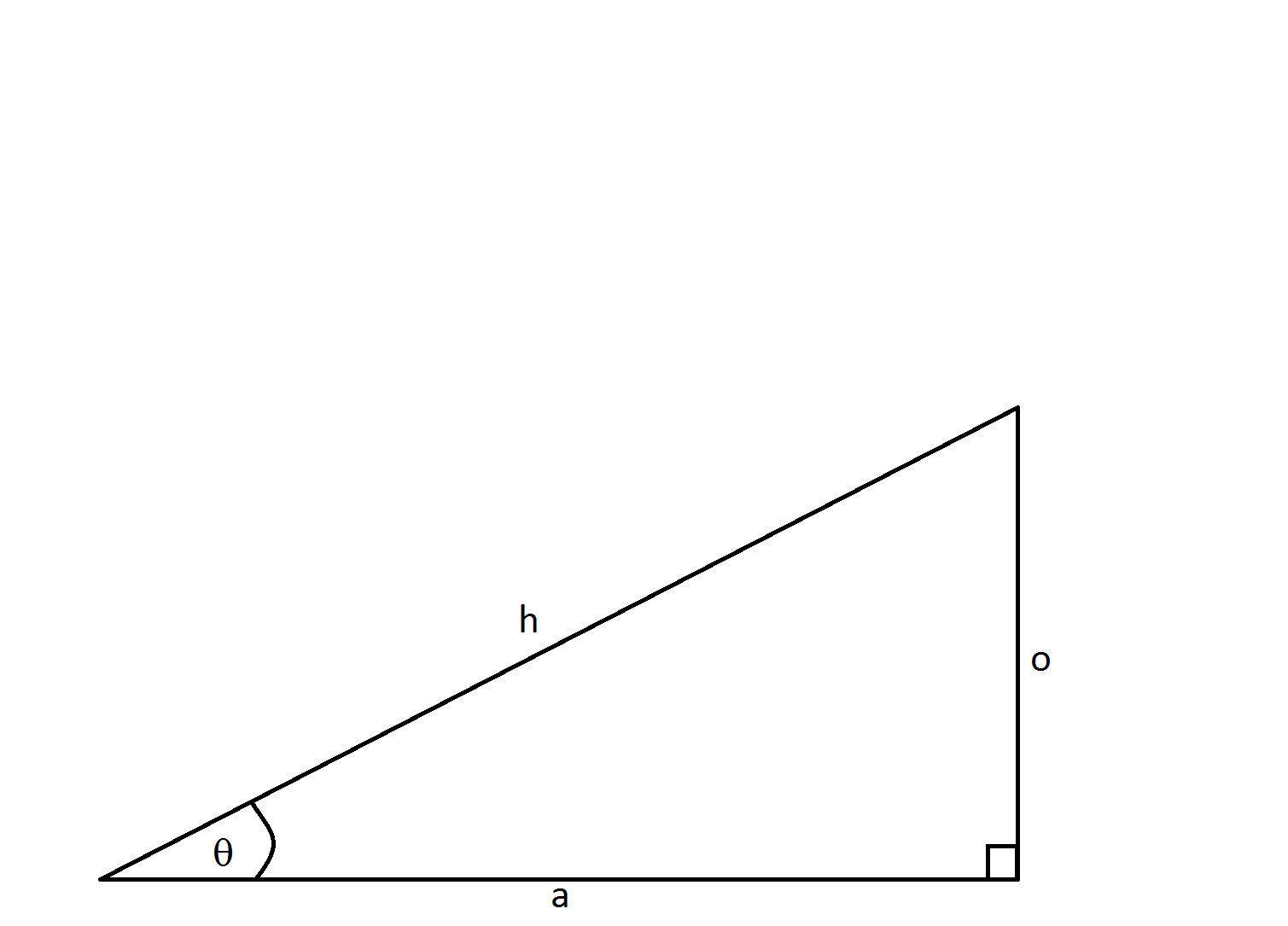How to find the length of the hypotenuse of a right triangle : Pythagorean Theorem
Help Questions
SAT Math › How to find the length of the hypotenuse of a right triangle : Pythagorean Theorem

In the figure above, 



Explanation
Assigning the length of ED the value of x, the value of AE will be 3_x_. That makes the entire side AD equal to 4_x_. Since the figure is a square, all four sides will be equal to 4_x_. Also, since the figure is a square, then angle A of triangle ABE is a right angle. That gives triangle ABE sides of 3_x_, 4_x_ and 10. Using the Pythagorean theorem:
(3_x_)2 + (4_x_)2 = 102
9_x_2 + 16_x_2 = 100
25_x_2 = 100
_x_2 = 4
x = 2
With x = 2, each side of the square is 4_x_, or 8. The area of a square is length times width. In this case, that's 8 * 8, which is 64.
A right triangle has legs of 15m and 20m. What is the length of the hypotenuse?
30m
45m
35m
40m
25m
Explanation
The Pythagorean theorem is a2 + b2 = c2, where a and b are legs of the right triangle, and c is the hypotenuse.
(15)2 + (20)2 = c2 so c2 = 625. Take the square root to get c = 25m
In order to get to work, Jeff leaves home and drives 4 miles due north, then 3 miles due east, followed by 6 miles due north and, finally, 7 miles due east. What is the straight line distance from Jeff’s work to his home?
2√5
11
10√2
15
6√2
Explanation
Jeff drives a total of 10 miles north and 10 miles east. Using the Pythagorean theorem (a2+b2=c2), the direct route from Jeff’s home to his work can be calculated. 102+102=c2. 200=c2. √200=c. √100√2=c. 10√2=c
Two sides of a given triangle are both 
Explanation
If we know two sides are equal to 

With this special triangle, we also know that the measure of the hypotenuse is equal to the measure of one side of the triangle times the square root of that measure.
Since one leg of the triangle is 

We could also solve this using the Pythagorean Theorem, like so:
What is the hypotenuse of a right triangle with side lengths 

Explanation
The Pythagorean Theorem states that . This question gives us the values of



Take 



Now we can start solving for 
The length of the hypotenuse is 

If 


Not enough information to solve
Explanation
This problem is solved using the Pythagorean theorem 



Using the labels of our triangle we have:
To get from his house to the hardware store, Bob must drive 3 miles to the east and then 4 miles to the north. If Bob was able to drive along a straight line directly connecting his house to the store, how far would he have to travel then?
5 miles
25 miles
9 miles
15 miles
7 miles
Explanation
Since east and north directions are perpendicular, the possible routes Bob can take can be represented by a right triangle with sides a and b of length 3 miles and 5 miles, respectively. The hypotenuse c represents the straight line connecting his house to the store, and its length can be found using the Pythagorean theorem: _c_2 = 32+ 42 = 25. Since the square root of 25 is 5, the length of the hypotenuse is 5 miles.
In a right triangle, the lengths of the two smallest sides are 5 and 12. Find the length of the hypotenuse.
Explanation
In order to find the length of the hypotenuse, we need to use the pythagorean theorem, which states that
By substituting 5 for a and 12 for b, we get
or,
To solve for c we need to take the square root of 169, which is 13. Therefore, the hypotenuse is 13.
You leave on a road trip driving due North from Savannah, Georgia, at 8am. You drive for 5 hours at 60mph and then head due East for 2 hours at 50mph. After those 7 hours, how far are you Northeast from Savannah as the crow flies (in miles)?
Explanation
Distance = hours * mph
North Distance = 5 hours * 60 mph = 300 miles
East Distance = 2 hours * 50 mph = 100 miles
Use Pythagorean Theorem to determine Northeast Distance
3002 + 1002 =NE2
90000 + 10000 = 100000 = NE2
NE = √100000





































 and
and  are the legs of the triangle, and
are the legs of the triangle, and  is the hypotenuse.
is the hypotenuse.













